Does Cutting Baby Hair Make It Grow Faster?
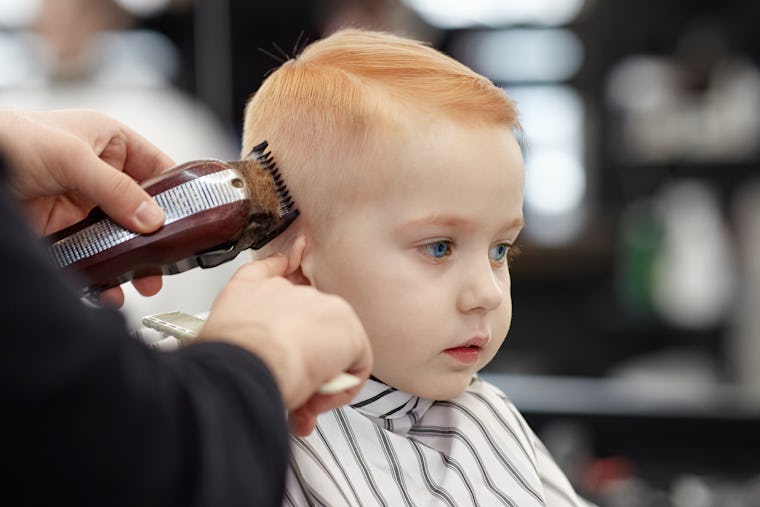
As a new parent, you may be wondering if cutting your baby's hair can make it grow faster. This is a common myth that many people believe in, but is there any truth to it?
The Myth of Cutting Baby Hair
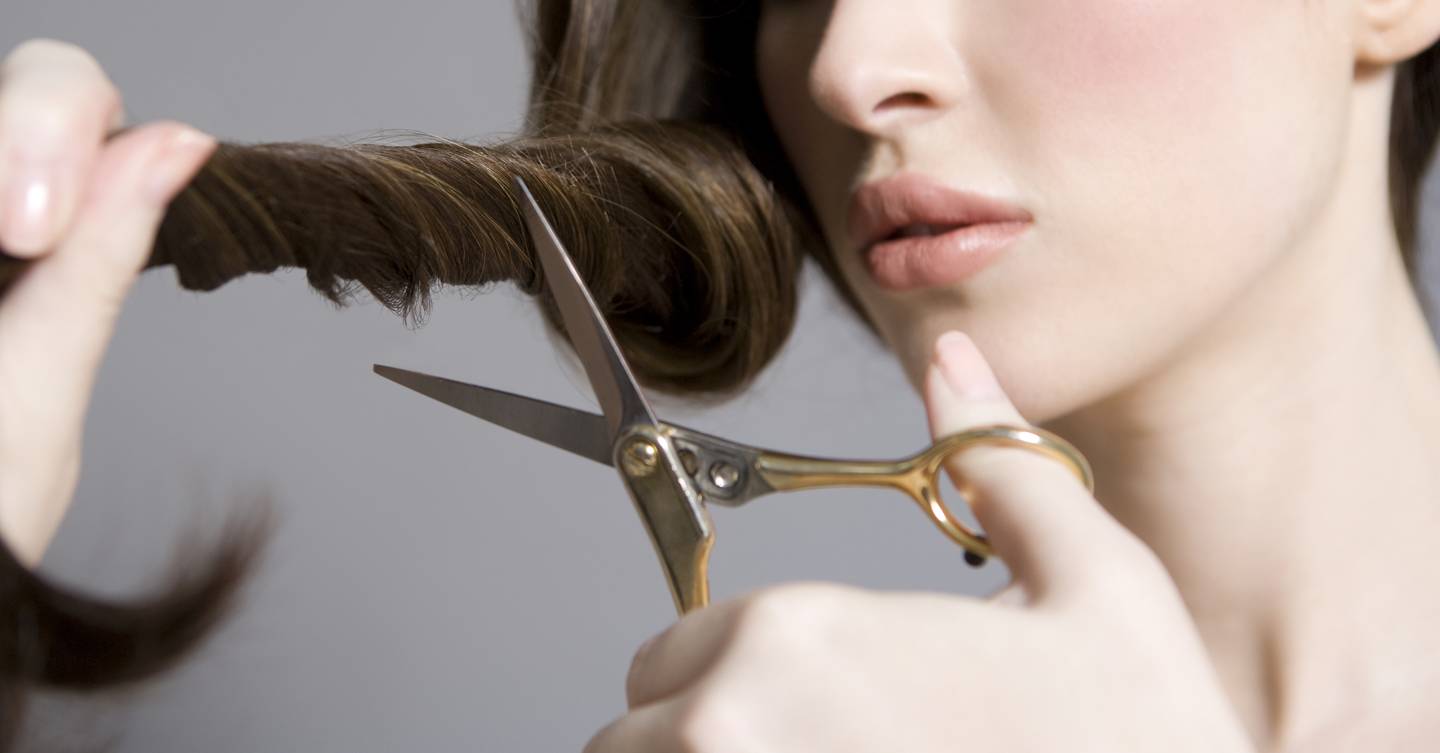
One of the most common myths about cutting baby hair is that it can make the hair grow faster and thicker. This is not true, and there is no scientific evidence to support this claim.
The truth is that hair growth is determined by genetics, hormones, and overall health. Cutting your baby's hair will not affect any of these factors.
When to Cut Your Baby's Hair

While cutting your baby's hair will not make it grow faster, there are other reasons why you may want to trim those locks.
One reason is to improve your baby's appearance. Over time, your baby's hair may become uneven or develop split ends. Trimming the hair can help to make it look neater and healthier.
Cutting your baby's hair can also make it more manageable. Long hair can get tangled easily, and trimming it can make it easier to brush and style.
How to Cut Your Baby's Hair
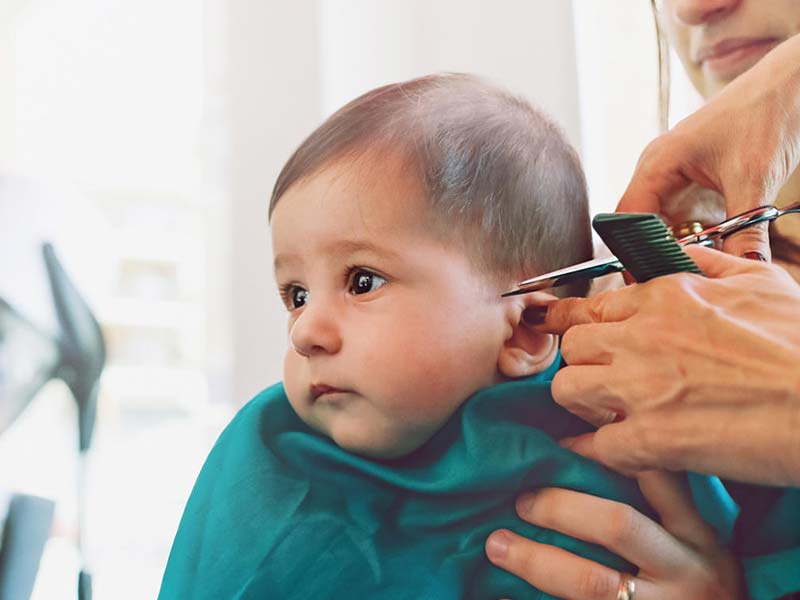
If you decide to cut your baby's hair, it is important to do so carefully and safely. Here are some tips to help you get started:
- Choose a time when your baby is calm and relaxed.
- Use sharp scissors that are specifically designed for cutting hair.
- Start by trimming small sections of hair at a time, and be careful not to cut too much off at once.
- Have someone hold your baby still while you cut the hair.
- Be prepared for your baby to move around and fuss during the process.
The Bottom Line

While cutting your baby's hair will not make it grow faster, there are other reasons why you may want to trim those locks. Just be sure to do so carefully and safely, and seek the advice of a professional if you have any concerns.
Remember, your baby's hair will grow at its own pace, and there is nothing you can do to speed up the process. So sit back, relax, and enjoy watching your little one grow!
Related video of Does Cutting Baby Hair Make It Grow Faster?
Does Cracking Your Knuckles Cause Arthritis?
Introduction
Cracking your knuckles is a common habit that many people have. Some people do it out of nervousness while others do it out of habit. But does cracking your knuckles cause arthritis? This is a question that has been asked for years, and there are many myths surrounding the topic. In this article, we will explore the truth behind cracking your knuckles and whether or not it can lead to arthritis.What Happens When You Crack Your Knuckles?
When you crack your knuckles, you are essentially creating a vacuum in the joint. This vacuum causes the gases in the joint fluid to form bubbles, which then collapse and create the popping sound that you hear. Contrary to popular belief, cracking your knuckles does not actually cause any damage to your joints.
What is Arthritis?
Arthritis is a condition that causes inflammation in the joints. There are many different types of arthritis, but the most common is osteoarthritis. This type of arthritis occurs when the cartilage in the joint starts to break down, causing pain and stiffness.Is There a Link Between Cracking Your Knuckles and Arthritis?
Despite what many people believe, there is no evidence to suggest that cracking your knuckles causes arthritis. In fact, a study published in the Journal of the American Board of Family Medicine found that there was no correlation between knuckle cracking and arthritis.Other Myths About Cracking Your Knuckles
There are many other myths surrounding the topic of cracking your knuckles. One of the most common is that it can lead to weakened grip strength. However, this has also been debunked by scientific research.Another myth is that cracking your knuckles can lead to swollen joints. Once again, there is no evidence to suggest that this is true.Should You Stop Cracking Your Knuckles?
While cracking your knuckles may not cause arthritis, it can still be annoying to those around you. If you want to stop cracking your knuckles, there are a few things you can try. One is to keep your hands busy with a stress ball or other object. Another is to wear a rubber band around your wrist and snap it every time you feel the urge to crack your knuckles.Conclusion
In conclusion, cracking your knuckles does not cause arthritis. While it may be annoying to those around you, it is not harmful to your joints. If you want to stop cracking your knuckles, there are many ways to do so. So go ahead and crack away, if that's what you enjoy.Related video of Does Cracking Your Knuckles Cause Arthritis?
Does Coffee Make You Poop?

Coffee is a popular beverage consumed by millions of people worldwide. It is known for its ability to keep you awake and energized. However, many people wonder if coffee has another effect on their body - making them poop.
What is coffee?
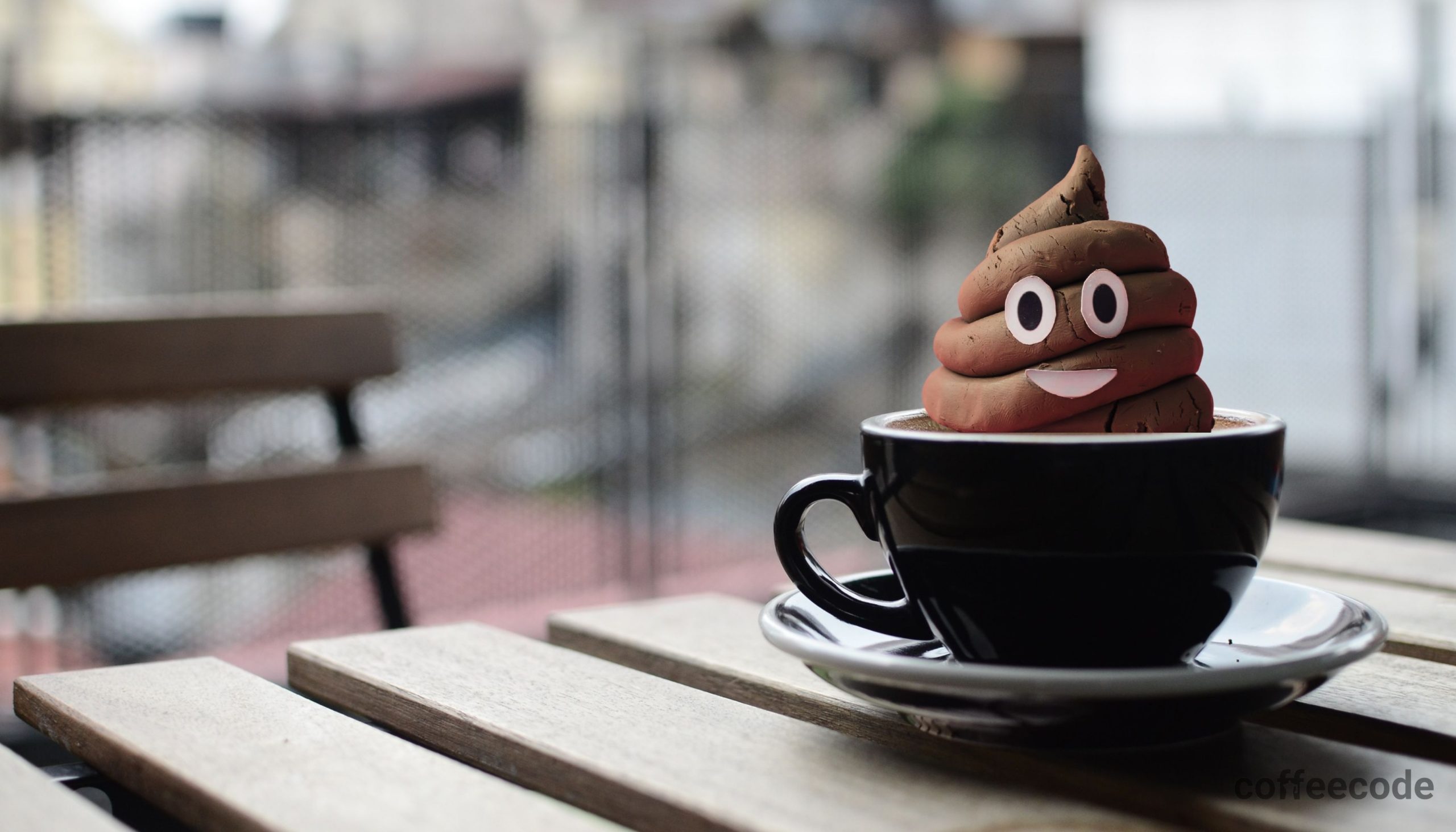
Coffee is a drink made from roasted coffee beans. These beans contain caffeine, which is a natural stimulant. When consumed, caffeine stimulates the central nervous system and increases alertness.
What happens when you drink coffee?

When you drink coffee, the caffeine in it stimulates the muscles in your digestive system. This can cause the muscles to contract, which leads to an urge to poop.
Why does coffee make you poop?
Drinking coffee can cause an increase in the production of stomach acid, which can lead to an increase in peristalsis - the contraction of muscles in the digestive tract that help move food and waste through the body. This increase in peristalsis can cause a bowel movement.
Does coffee affect everyone the same way?

No, coffee affects everyone differently. Some people may experience the urge to poop after drinking coffee, while others may not. The effect of coffee on bowel movements can also depend on factors such as age, sex, and individual differences in digestive processes.
Is coffee a laxative?

While coffee can have a laxative effect, it is not considered a true laxative. Laxatives are substances that are specifically designed to promote bowel movements. Coffee is a beverage that can cause an increase in peristalsis, which can lead to a bowel movement.
Can drinking too much coffee cause diarrhea?

Yes, drinking too much coffee can cause diarrhea. This is because caffeine is a diuretic, which means it can cause fluid loss in the body. When this happens, the body may respond by producing more fluid to replace what was lost. This can lead to diarrhea.
How much coffee is too much?

The amount of coffee that is considered too much can vary from person to person. Generally, consuming more than 400 milligrams of caffeine per day can lead to negative side effects such as jitteriness, anxiety, and insomnia. This is equivalent to about four cups of coffee per day.
What are the benefits of drinking coffee?
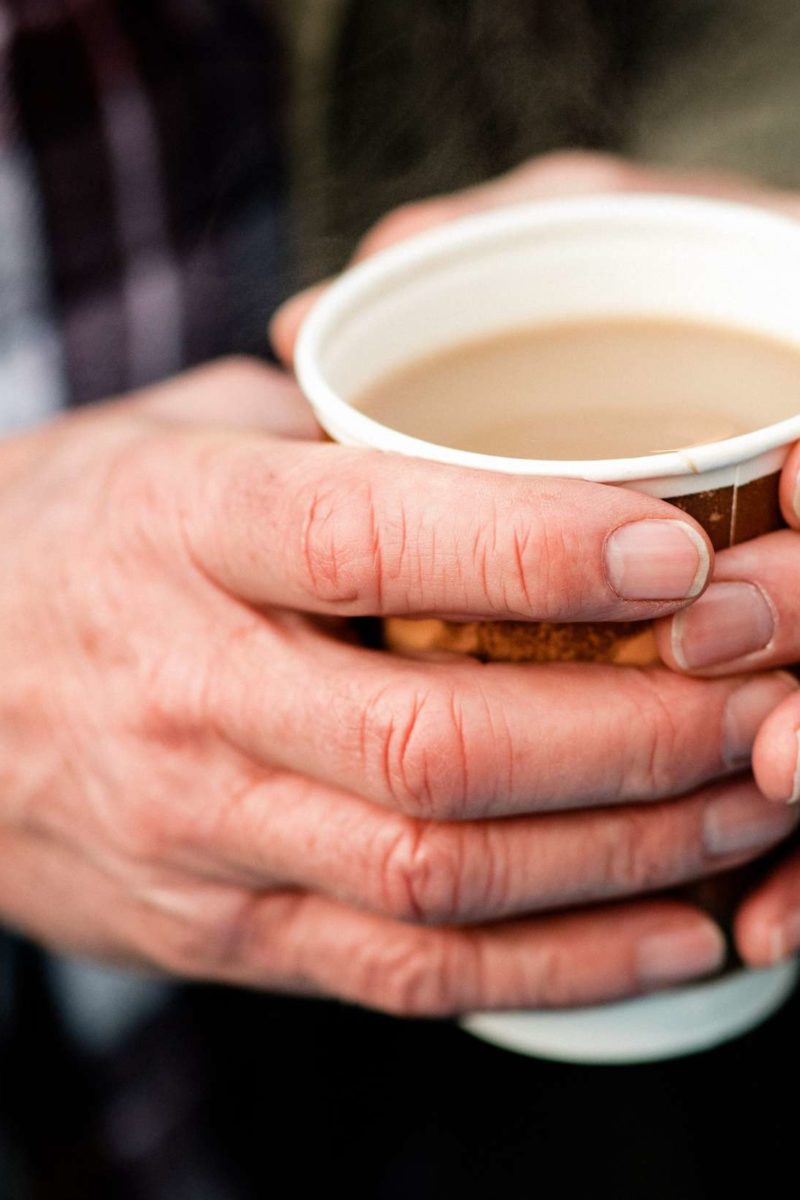
While coffee has a reputation for causing bowel movements, it also has many potential health benefits. Drinking coffee has been linked to a reduced risk of several diseases, including type 2 diabetes, liver disease, and Parkinson's disease. It may also improve brain function and help with weight loss.
Conclusion
So, does coffee make you poop? The answer is yes, drinking coffee can lead to a bowel movement. However, the effect of coffee on bowel movements can vary from person to person. While coffee can have a laxative effect, it is not considered a true laxative. Drinking too much coffee can also lead to negative side effects such as diarrhea. Despite this, coffee has many potential health benefits and can be a part of a healthy diet when consumed in moderation.
Related video of Does Coffee Make You Poop?
Does Chemo Always Cause Hair Loss

One of the most common side effects of chemotherapy is hair loss. For many people, the idea of losing their hair can be very distressing. However, not everyone who undergoes chemotherapy will experience hair loss. In this article, we'll take a closer look at the relationship between chemotherapy and hair loss.
What is chemotherapy?

Chemotherapy is a type of cancer treatment that uses drugs to destroy cancer cells. These drugs are usually given intravenously, but they can also be given orally or topically. Chemotherapy drugs work by targeting rapidly dividing cells, including cancer cells.
How does chemotherapy cause hair loss?

Chemotherapy drugs target not only cancer cells but also rapidly dividing cells in the body, including hair follicles. This is why hair loss is a common side effect of chemotherapy. The drugs damage the hair follicles, which can cause hair to fall out.
Does everyone who undergoes chemotherapy experience hair loss?

No, not everyone who undergoes chemotherapy will experience hair loss. The likelihood of hair loss depends on the type of chemotherapy drugs used, the dosage, and the individual's response to the drugs. Some people may experience only mild thinning of the hair, while others may experience complete hair loss.
Can hair loss be prevented during chemotherapy?

Unfortunately, there is no guaranteed way to prevent hair loss during chemotherapy. However, there are some things that may help reduce the severity of hair loss, such as using a cold cap during treatment or taking certain medications.
What is a cold cap?
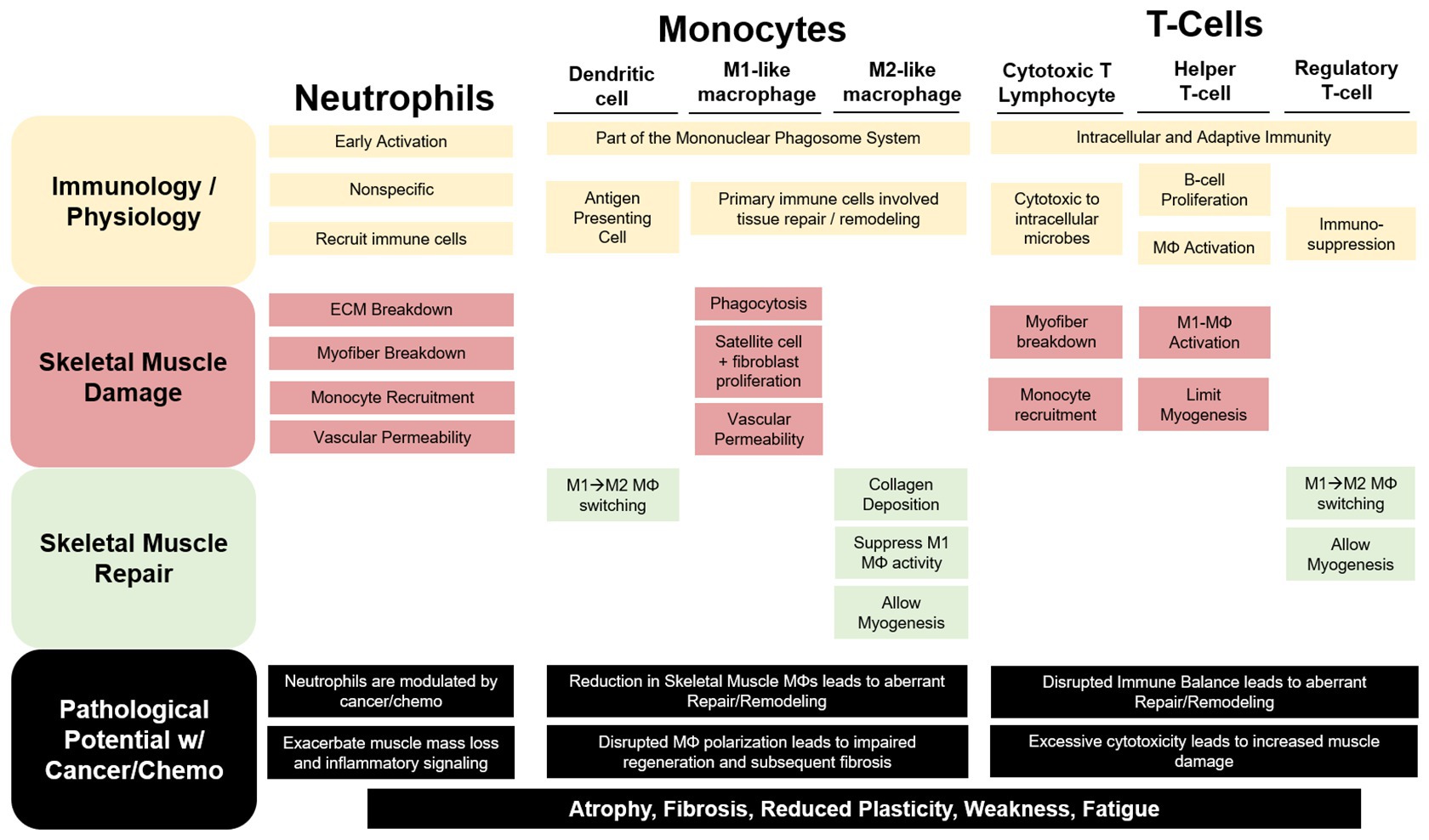
A cold cap is a device that is worn on the head during chemotherapy. The cap is cooled to a very low temperature, which can help reduce blood flow to the scalp and protect the hair follicles from the chemotherapy drugs. However, not all cancer centers offer cold caps, and they are not effective for everyone.
What are some other side effects of chemotherapy?

In addition to hair loss, chemotherapy can cause a variety of other side effects, including nausea, vomiting, fatigue, loss of appetite, and increased risk of infection. These side effects can be managed with medications and other treatments.
Is hair loss permanent after chemotherapy?

For most people, hair loss due to chemotherapy is temporary. Hair usually begins to grow back a few weeks after treatment ends. However, the new hair may be different in texture, color, or thickness than the original hair.
What can be done to promote hair regrowth after chemotherapy?

There are some things that may help promote hair regrowth after chemotherapy. These include eating a healthy diet, getting regular exercise, and avoiding harsh chemicals and heat styling tools. Some people also find that using gentle hair care products and massaging the scalp can help stimulate hair growth.
What should I do if I experience hair loss during chemotherapy?

If you experience hair loss during chemotherapy, it's important to remember that this is a temporary side effect. Many people find it helpful to talk to a counselor or support group about their feelings surrounding hair loss. You may also want to consider getting a wig or other head covering to help you feel more comfortable and confident.
Conclusion
While hair loss is a common side effect of chemotherapy, not everyone who undergoes treatment will experience it. There are some things that may help reduce the severity of hair loss, such as using a cold cap or taking certain medications. Hair loss due to chemotherapy is usually temporary, and hair usually begins to grow back a few weeks after treatment ends. If you experience hair loss during chemotherapy, it's important to remember that this is a temporary side effect and to seek support from a counselor or support group.
Related video of Does Chemo Always Cause Hair Loss
Does Body Hair Grow Back Thicker?

Introduction
Body hair is a part of our natural human anatomy, and while some people love it, others prefer to be hairless. When it comes to removing hair, many people believe that shaving, waxing, or plucking will cause the hair to grow back thicker. This is a myth that has been around for a long time, and in this article, we will explore the truth behind it.
What Causes Hair Growth?
Hair growth is a natural process that occurs in all mammals, including humans. Hair follicles, which are located beneath the skin's surface, produce hair. The growth of hair is controlled by hormones and genetics, and it varies from person to person.

Why Do People Believe That Hair Grows Back Thicker?
The myth that hair grows back thicker after shaving or waxing may have arisen due to the fact that when hair is cut, it appears thicker at the base. However, this is only an illusion, and the hair is not actually thicker. When hair grows back after being cut, it is the same thickness and color as it was before.
What Happens When Hair Is Removed?
When hair is removed by shaving, waxing, or plucking, it is only removed from the surface of the skin. The hair follicle beneath the skin's surface is not affected, and the hair will continue to grow as it did before. However, when hair grows back, it may feel coarser and stubbly because the end of the hair has been cut straight across.
How Does Hair Grow?
Hair grows in three stages: anagen, catagen, and telogen. The anagen phase is the active growth phase, and hair can grow up to 1 inch per month during this stage. The catagen phase is the transitional phase, and the hair follicle shrinks. The telogen phase is the resting phase, and the hair falls out. After the telogen phase, the anagen phase begins again, and a new hair grows.
Does Hair Grow Back Thicker After Menopause?
After menopause, many women notice that their hair becomes thinner and finer. This is because the body produces fewer hormones that stimulate hair growth. Hair does not grow back thicker after menopause, and in fact, it may grow back thinner.
Conclusion
In conclusion, the myth that hair grows back thicker after shaving, waxing, or plucking is just that – a myth. Hair grows back at the same thickness and color as it was before, and any perceived difference in thickness is just an illusion. It is important to remember that hair removal is a personal choice, and there is no right or wrong answer. Whether you prefer to be hairless or embrace your body hair, it is entirely up to you.